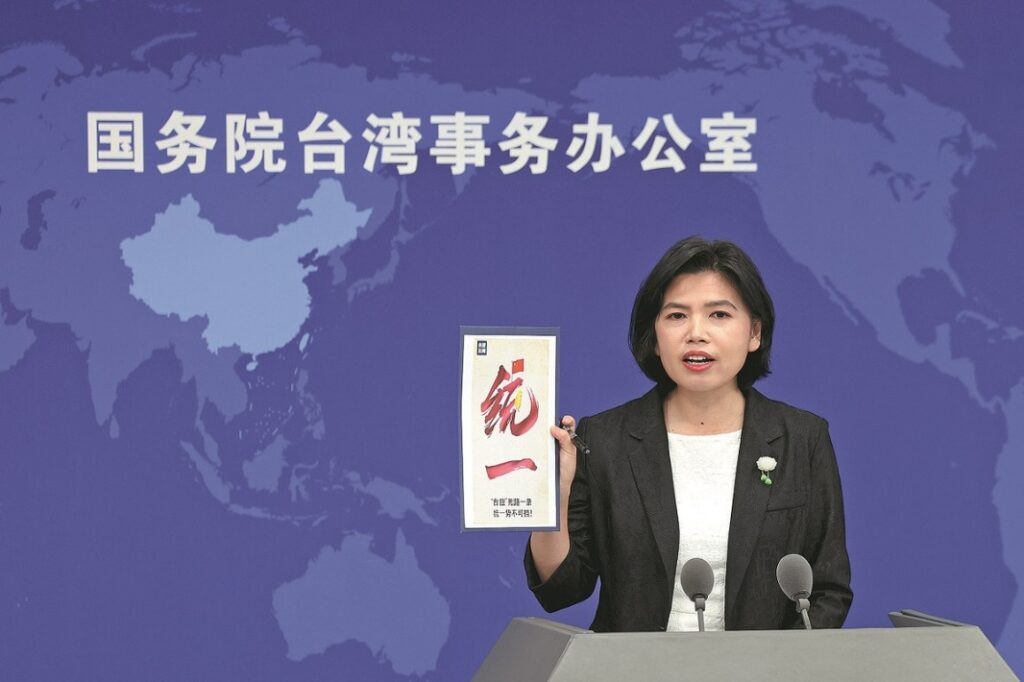
Zhu Fenglian, spokesperson for the State Council's Taiwan Affairs Office, unveiled the unified poster from China Central Television at a news conference in Beijing on Wednesday. ZHANG YU/CHINA NEWS SERVICE
A mainland Chinese spokesman said on Wednesday that a recent move by some Taiwanese celebrities to distribute posters on social media in support of unification with mainland China reflected their awareness of their Chinese identity.
A number of Taiwanese entertainers have reposted a poster first uploaded by China Central Television last week calling for the unification of Taiwan and mainland China to be unstoppable.
The move by celebrities comes after the Taiwan region's new leader, Lai Ching-te, blatantly called for “Taiwan independence” in his “inaugural address” earlier this month.
Many Taiwanese entertainers have also repeatedly used the word “we” to describe their stance on the Taiwan issue. A-shin, lead singer of the famous Taiwanese rock band Mayday, said at a concert in Beijing last week, “When we Chinese come to Beijing, we have to eat Peking duck.”
Zhu Fenglian, spokesman for the State Council's Taiwan Affairs Office, said at a press conference in Beijing that in recent days, nearly 100 Taiwanese prominent figures have expressed their opinions on cross-strait relations and Chinese identity through various channels and platforms.
Others have also reposted the unification poster, which has been viewed more than 1.8 billion times on Weibo and reposted more than 17 million times, Zhu said.
“Some entertainers shared stories they had heard from elders about their ancestors who were from mainland China, and expressed hope for greater exchanges since both sides of the Taiwan Strait are part of the Chinese nation,” she said, adding that “these expressions were genuine and heartfelt.”
But Taiwan's Democratic Progressive Party officials accused mainland China of pressuring prominent figures to make such comments, with DPP leader Lai urging people to “understand and forgive them.”
Responding to Lai's remarks, Hsiao Xu-xian, secretary-general of the Ma Ying-jeou Foundation, said, “People on both sides of the Taiwan Strait are Chinese, so since when have we been allowed to call ourselves Chinese?”
He said both camps have traditions of honouring ancestors and worshipping the sea goddess Mazu and the legendary figure Guan Gong, and both are part of the Chinese nation. “What's wrong with an artist like A Shin saying this?” he asked.
Zhu, the spokesman, accused Lai and the DPP of exploiting the situation for political gain, exacerbating cross-strait tensions and unfairly accusing prominent figures of making “compulsory statements.”
This shows the DPP government is stepping up efforts to suppress the voices of Taiwanese people, she said.

